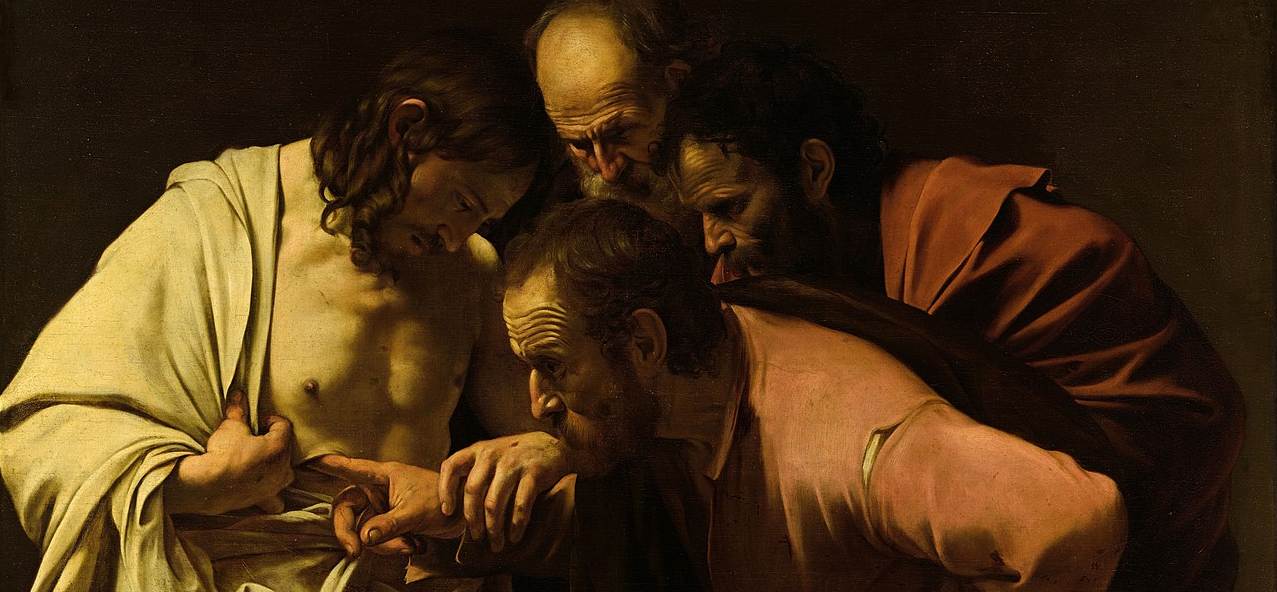Doubting Thomas
“Doubting Thomas” is used mostly in a negative sense to refer to a skeptic.
Now Thomas … was not with the disciples when Jesus came. So the other disciples told him, “We have seen the Lord!” But he said to them, “Unless I see the nail marks in his hands and put my finger where the nails were, and put my hand into his side, I will not believe.”
A week later his disciples were in the house again, and Thomas was with them. Though the doors were locked, Jesus came and stood among them and said, “Peace be with you!” Then he said to Thomas, “Put your finger here; see my hands. Reach out your hand and put it into my side. Stop doubting and believe.”
Thomas said to him, “My Lord and my God!”
Then Jesus told him, “Because you have seen me, you have believed; blessed are those who have not seen and yet have believed.”
Was Jesus rebuking Thomas? Thomas would have seen Jesus perform many miracles by this point. Surely he could have trusted the other disciples.
Nevertheless, Jesus offers Thomas the confirmation he seeks. The Bible records many instances of doubt being assuaged. Gideon was shown the proof he requested of God’s instruction. Abraham was regarded as faithful despite his requests for confirmation:
[The Lord] took him outside and said, “Look up at the sky and count the stars—if indeed you can count them.” Then he said to him, “So shall your offspring be.” Abram believed the Lord, and he credited it to him as righteousness.
He also said to him, “I am the Lord, who brought you out of Ur of the Chaldeans to give you this land to take possession of it.”
But Abram said, “Sovereign Lord, how can I know that I will gain possession of it?”
So the Lord made a covenant with Abraham, and the New Testament writers would simply note “What does Scripture say? ‘Abraham believed God, and it was credited to him as righteousness.’” (Romans 4:3)
Faith is not so much the absence of doubt, as the willingness to believe, and act on that belief. What Thomas subsequently did is not recorded in the Bible; tradition has it that he took the gospel to India.
What became of Abraham is better known:
By faith Abraham, when called to go to a place he would later receive as his inheritance, obeyed and went, even though he did not know where he was going. By faith he made his home in the promised land like a stranger in a foreign country; he lived in tents, as did Isaac and Jacob, who were heirs with him of the same promise. For he was looking forward to the city with foundations, whose architect and builder is God. And by faith even Sarah, who was past childbearing age, was enabled to bear children because she considered him faithful who had made the promise. And so from this one man, and he as good as dead, came descendants as numerous as the stars in the sky and as countless as the sand on the seashore. (Heb 11:8-13)
As for us, we are those who must believe without having seen. And yet we are not without good reason.
After his suffering, he presented himself to them and gave many convincing proofs that he was alive. He appeared to them over a period of forty days and spoke about the kingdom of God. (Acts 1:3)
That his disciples sincerely believed in Jesus’ resurrection is surely one of the strongest arguments for its historicity. It is hard to deny the existence of Christianity, and the persecution of early believers is well-documented. What could cause a group of people to spread such an outlandish message, in the face of such opposition, to the extent that it could spread to, eventually, every country in the world?
